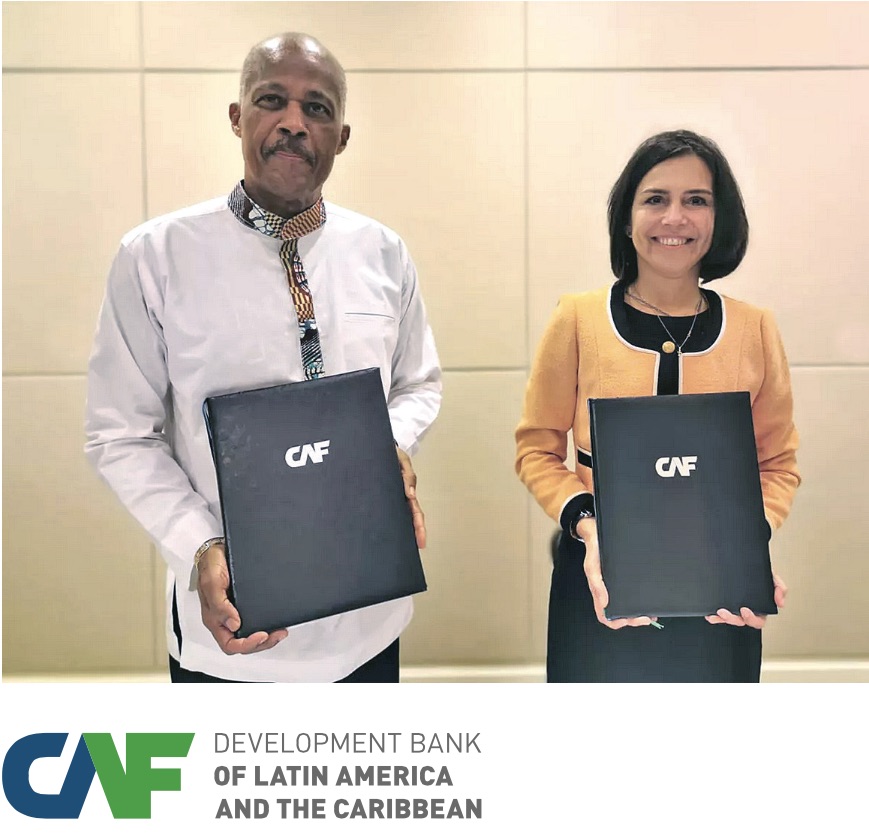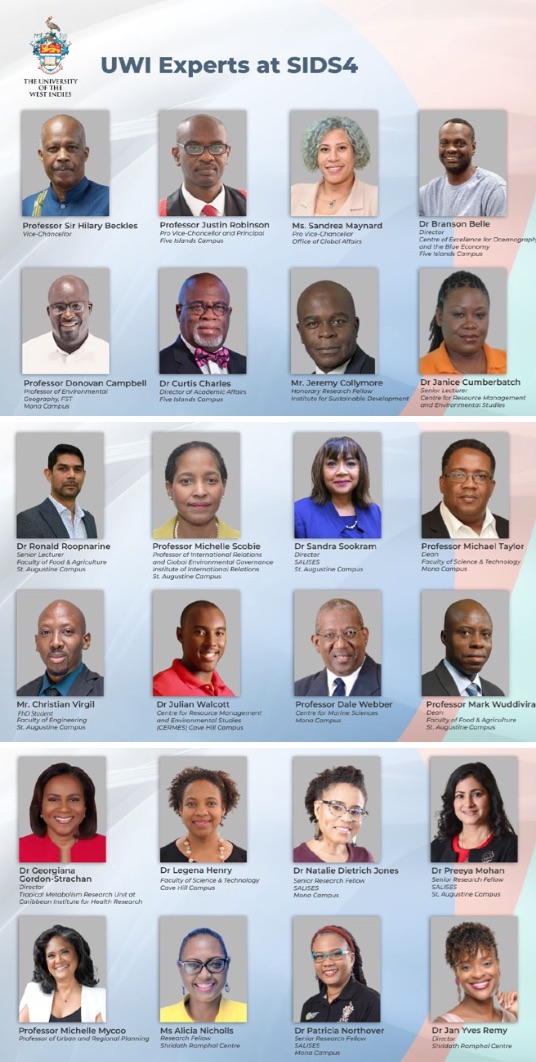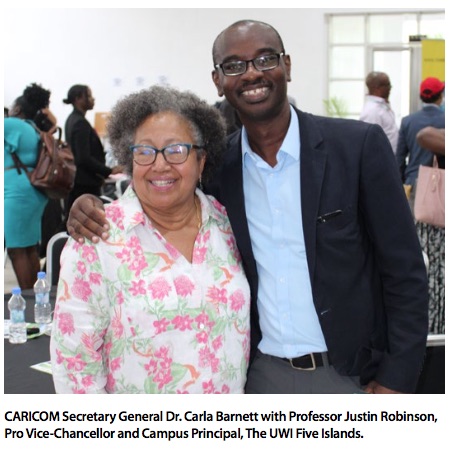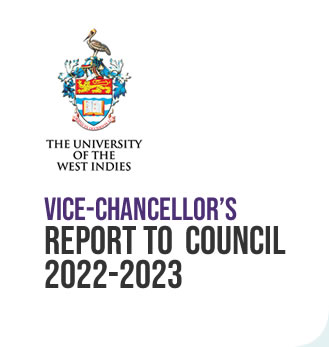SDG-ENGAGED UNIVERSITY
UWI AT THE 4th INTERNATIONL CONFERENCE ON SMALL ISLAND DEVELOPING STATES

In May 2024, Antigua and Barbuda became the vibrant backdrop for the 4th International Conference on Small Island Developing States (SIDS4), bringing together over 25 regional leaders, academics, and interdisciplinary experts. The University of the West Indies proudly represented the Caribbean at this landmark conference, contributing to critical discussions to shape a sustainable future for small island nations.
One of the standout themes from the conference was the urgent need to explore deep-sea ecosystems. Caribbean SIDS have historically missed opportunities to delve into these vital underwater realms. Participants emphasized that by enhancing the region’s deep-sea science capabilities through collaboration with the International Seabed Authority, the Caribbean could open new frontiers of understanding and opportunity.
Data and digital technologies were also at the forefront of the conversation. Experts highlighted the pressing necessity to address research and data gaps within the informal sector, as these elements are crucial for harnessing social transformation. In a world where data can inform policies and drive resilience, SIDS must quantify adaptation efforts and assess their efficacy to bolster the region’s capabilities.

A significant takeaway from SIDS4 was the clarion call for heightened international collaboration. Attendees noted that while resilience and ingenuity are essential in confronting the unique challenges faced by small islands, investment in science and technology is equally crucial. Such partnerships could transform regional vulnerabilities into robust strengths, paving the way for a prosperous future.
Another point of discussion was the alignment of educational objectives with the emerging Blue Economy. Delegates underscored the importance of maximising partnerships in education and research. By doing so, SIDS can actively engage with and benefit from the myriad opportunities this burgeoning economic sector presents.
Innovation was also a focal point, particularly regarding intellectual property protection. Conference participants stressed the necessity for stronger safeguards to protect local innovations from small islands, allowing creators and innovators to reap the rewards of their contributions.
The discussions turned toward climate finance, with a consensus that academic institutions are pivotal in supporting research and educational programmes on climate change. Funding must empower these institutions and foster collaborative projects with local communities to address the climate crisis effectively.
Strengthening local economies emerged as a keystone for sustainable development in SIDS. Delegates reiterated the need for tangible financial commitments from developed nations to enhance climate resilience and drive sustainable growth. However, attendees expressed a palpable aspiration—SIDS must strive for more than mere subsistence; quality of life hinges on cultivating strong and resilient economies.
Moreover, the conference underscored the need for increased collaboration in climate litigation. Participants recognised that advancing the green trade agenda requires cross-sectoral dialogues, involving those engaged in shipping, trading, and other related fields.
Lastly, the pressing need for better capacity building was highlighted, with discussions revealing that a staggering EUR 300 billion is required to address the adaptation deficit in SIDS.

The international community must expedite efforts to channel funding to vulnerable nations while empowering them to absorb these resources effectively.
As the conference concluded, it was clear that the collective insights and strategies forged during SIDS4 would play a critical role in shaping the resilience and future prosperity of Caribbean small islands. The urgency of collaboration, innovation, and education echoed throughout the discussions, illuminating a path forward for these unique nations grappling with the complex challenges of our time.


